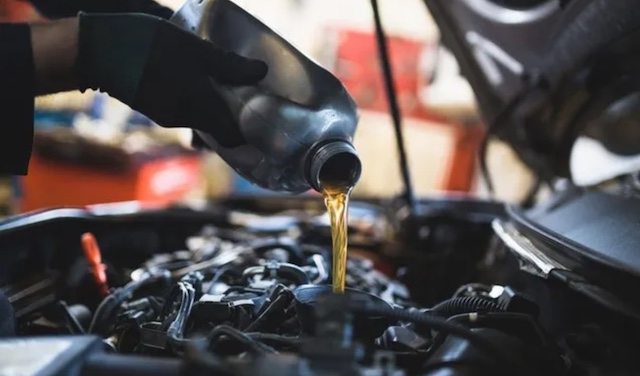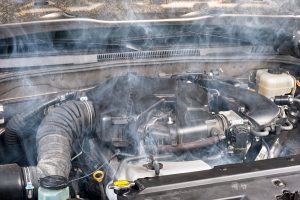

We’ve all experienced it. Getting in the car and either checking the sticker in the corner of your windshield or getting that dashboard signal that reminds you that you need an oil change. We get it, scheduling an oil change sounds like a chore. You may even feel like you don’t have enough time in the week to fit in an oil change but, delaying your next oil change can lead to long-term engine problems. Oil is essential in maintaining the internal components of the engine and must be changed on a schedule based on mileage or time. Let’s discuss what happens when you wait too long to get an oil change.
How Does Engine Oil Work?
To understand why it is crucial to stay up to date with oil changes, it’s important to know what engine oil does. Your vehicle’s engine has many moving parts. This includes pistons that move within the cylinder, rubbing against rods to create energy. The friction between these parts create heat. Luckily, your vehicle’s oil lubricates the engine absorbing the heat emitted. This allows the components to work together without overheating.
Over time, engine oil beings to break down losing its ability to lubricate and absorb the heat. Thus, your vehicle’s oil needs to be changed at specific intervals to maintain optimal performance for your engine.
How Often Should I Get My Oil Changed?
Engine oil isn’t one size fits all. Oil can be conventional, synthetic, a blend, or high-mileage. Each vehicle has its own requirements when it comes to the type of oil you should be using. It all depends on the kind of engine your vehicle has. For example, a turbo engine needs oil changes more frequently than other engines require. Aside from the type of vehicle and engine, you must also consider other factors such as your driving style, your vehicle’s year, the climate, and the frequency of the vehicle usage.
Most automotive engines operate best when their oil is changed at 3,000-mile intervals. If you use synthetic oil, your engine can maintain performance even longer so getting it changed every 6,000-10,0000 miles is recommended.
If you have any questions about what oil service plan is best for you and your vehicle, give us a call and we will be happy to walk you through the process!
What Happens if I Wait Too Long for an Oil Change?
Engine oil needs to be thin and slippery enough to lubricate everything within an engine. If you wait too long for an oil change, your smooth and clean oil will become dirty sludge.
If you keep driving your car without getting an oil change, the engine oil:
- Can no longer lubricate the engine
- Can no longer cool the engine
- Loses most of its additives, which impacts the engine’s health
So what happens when your engine is running on dirty and sludgy oil? A variety of serious engine problems:
1. Metal to Metal Contact

When the engine oil fails to lubricate the engine parts, heat is no longer being removed. This causes metal to push and grind against other metals. Before your engine fails, you will encounter a variety of engine problems including:
- Excess oil consumption
- Loss of compression
- Fouling of spark plugs and O2 sensors
Unfortunately, if you notice any of these issues, your engine most likely will be beyond the point of repair.
2. Overheating Engine

When the engine oil becomes too dirty, it doesn’t lubricate well which causes the engine to overheat. When an engine consistently runs too hot, it is at risk of:
- Blowing a head gasket
- Damaging or cracking a head or block
- Seizing
A blown head gasket is extremely dangerous to you and other drivers on the road as it will stop you in your tracks.
3. Clogged Oil Filter

Dirty oil will clog the oil filter faster stripping the engine of oil. The oil pressure will drop when the engine’s moving parts are not lubricated.
4. Your Vehicle’s Warranty Can Get Voided

Many vehicle warranties require that you must maintain your vehicle based on the manufacturer’s recommended schedule. If you fail to do that, the manufacturer can void your vehicle’s warranty. That means you’d be stuck paying for major repairs, or a new engine out of pocket.
5. Complete Engine Failure

If you go long enough without an oil change, it could total your vehicle. Once the engine oil becomes sludge, it will no longer be able to remove heat from the engine leading to a complete engine shut down. This will either require a new engine or a new car.
Overall, prevention is easier and safer than a cure to a problem. It is far less expensive, less time-consuming, and less dangerous to get your oil changed on time than repairing any of the problems above. So next time you need an oil change or if you are overdue now, turn to the experts at Luke’s Auto Service in Verona, NJ for quality, reliable services!
Images:
gopurepower.com
References:
cbac.com
